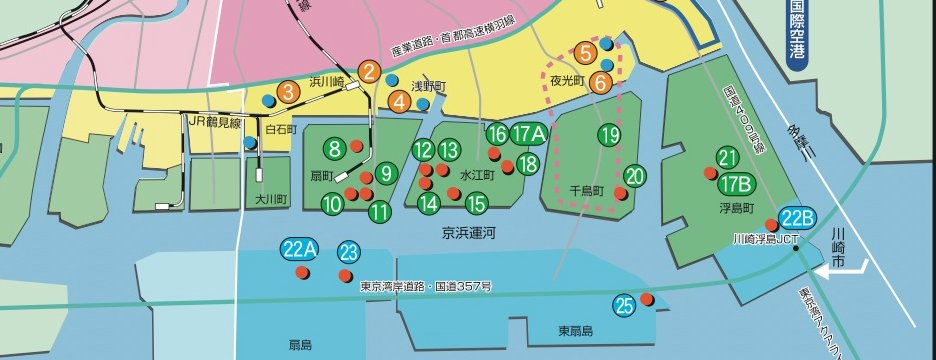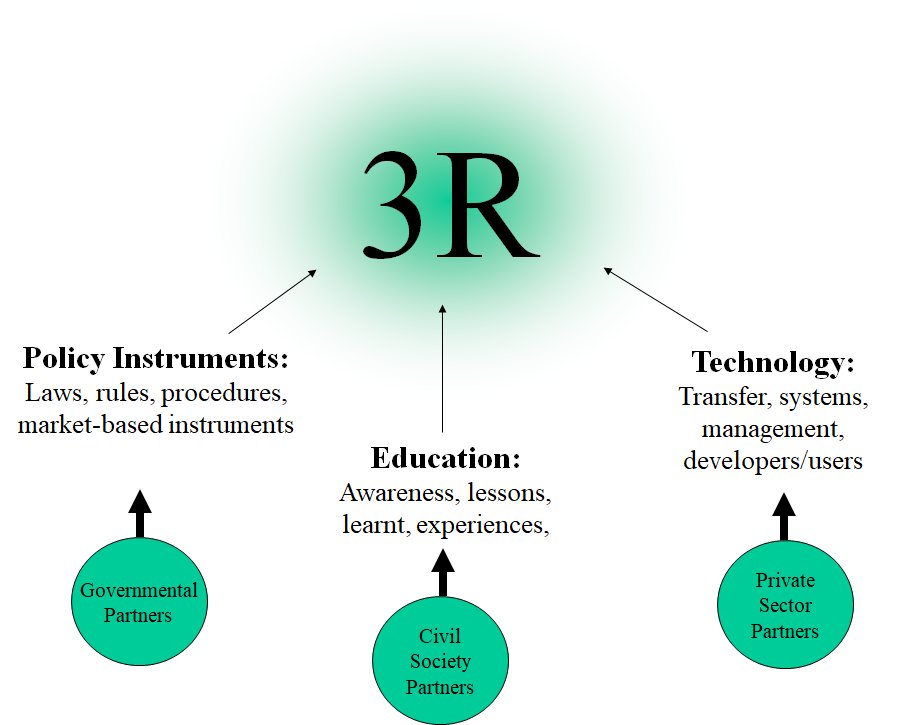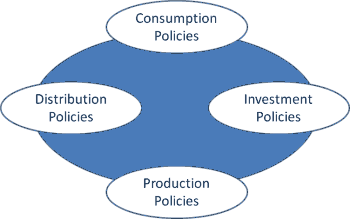Directions for a 3R Future
|

Abstract
The 3R Initiative (Reduce, Reuse, Recycle) was formally launched by Japan at the 2005 G8 Ministerial Meeting in Tokyo, setting the stage for a global transition toward a sound material-cycle society. The Japanese experience highlights the importance of integrating governance, education, technology, and finance in shaping effective 3R policies. A life-cycle approach is central, involving stakeholders at every stage?from production to final disposal.
By embedding 3R principles into consumption, investment, production, and distribution practices, Japan has demonstrated how national and local policies can contribute to global sustainable development goals through systemic change and multi-stakeholder collaboration.
Keywords
3R Initiative, waste management, sustainable consumption, lifecycle approach, recycling policy, environmental governance, eco-efficiency, Japan
|
 |
Hari Srinivas |
|
Policy Analysis Series E-096. April 2015.
|
Various activities have been, and are being, planned as a part of the follow-up to WSSD and the 10-Year Framework Programme for Sustainable Production and Consumption. At the G8 Ministerial Meeting organized in Tokyo, Japan from 28-30 April 2005, host Japan formally launched a '3R Initiative'. This is a starting point to pursues activities globally, aiming for a sound material-cycle society through the 3Rs.
The success of such an initiative will largely depend on the right mix of policies and programmes implemented at the local level. As the Japanese experience has shown, the key spheres of action will revolve around governance issues such as laws, legislation, rules and procedures; education and awareness building issues, targeting stakeholders in the public and private sectors, but also communities and consumers alike; technology issues, to ensure that industrial, manufacturing and market activities and technologies used have a minimum impact on the environment, and produce the least amount of wastes possible; and financial issues, focusing on subsidies and taxation to facilitate action in the right direction, and to discourage unsound practices.

Ultimately, the life cycle of a product in itself should guide the action necessary to development and implement a comprehensive 3R Initiative based on integrated waste management systems:
- At the production stage, the target stakeholder of businesses should look at 3R oriented designs for resource-saving, long-life; reuse; recycling; and labeling materials used.
- Orienting the consumption/use stage of the life cycle a product can be focused on national and local authorities to take the lead in purchasing environmentally friendly products and services.
- The collection/recycling stage is critical, asking of consumers to properly discharge the products they use, or participate in product buy-back programmes; and of businesses to promote product recycling.
- At the final stage of disposal, businesses and municipalities have the responsibility to ensure that waste products are properly discharged and/or incinerated.
Much of this will also depend on developing an integrated framework bringing together the above points with other issues, including
- Consumption policies and practices, such as consumer values, norms and behaviour, and awareness and education etc.
- Investment policies and practices, such as greener procurement, subsidies and eco-taxes, Socially Responsible Investment (SRI) etc.
- Production policies and practices, such as integrated product policy, life cycle assessment, extended producer responsibility, precautionary principle, polluter pays principle, eco-efficiency/ clean production, health and safety standards etc.
- Distribution policies and practices, such as right to know, advertising reform, eco-labeling, packaging, pricing, transportation etc.
Table 1: Three Examples from Japan
|
Extended Producer Responsibility in Akita Prefecture
Akita Prefecture implemented one of Japanfs most progressive Extended Producer Responsibility (EPR) systems for electronic waste. Under this system, manufacturers are obligated to collect and recycle appliances at the end of their lifecycle. Public-private partnerships helped establish collection centers and awareness campaigns, ensuring consumers discharged waste responsibly. This localized approach supported national policy goals by linking product design, recycling systems, and final disposal accountability.
|
Zero-Waste Initiatives in Kamikatsu, Tokushima
The rural town of Kamikatsu has gained international recognition for its zero-waste program, which emphasizes sorting household waste into over 40 categories for recycling or reuse. This initiative demonstrates a deep integration of education, community engagement, and consumption-stage behavior change. Residents actively participate in workshops and campaigns, taking individual responsibility for waste separation and reducing landfill dependency. Kamikatsu's success illustrates how community-based governance and behavioral change can drive a 3R-oriented society from the bottom up.
|
Circular Agriculture in Aso Region, Kumamoto
In the Aso region of Kumamoto Prefecture, local governments and farming cooperatives have collaborated to develop closed-loop agricultural practices that integrate 3R principles. Organic waste from food processing and livestock is composted and returned to the soil as fertilizer, while crop residue is reused for biomass energy. This life-cycle approach to resource use in agriculture highlights how local production systems can be optimized for environmental and economic sustainability, aligning with both production and disposal-stage 3R strategies.
|
|



